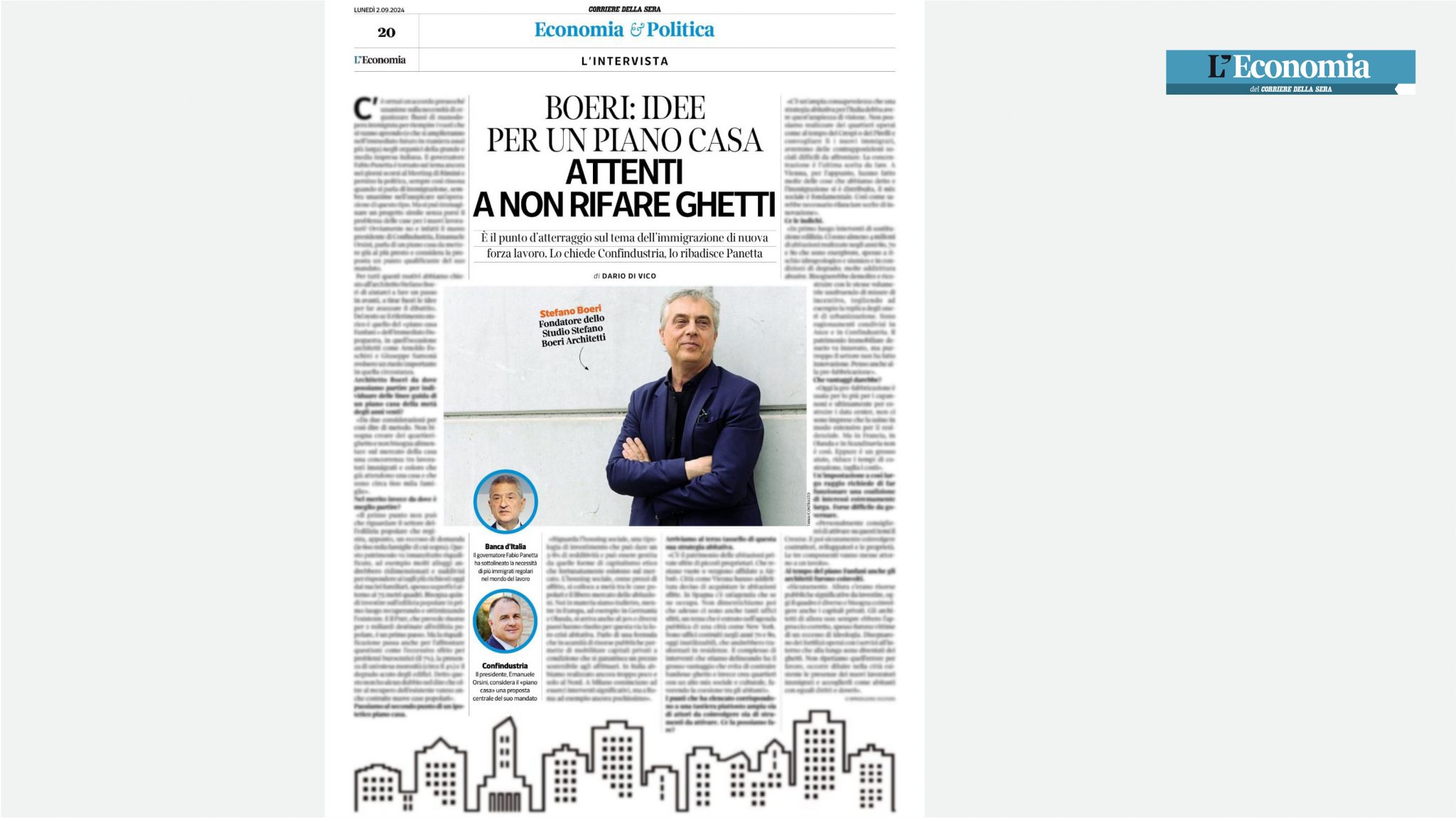
In the weekly supplement L’Economia of Corriere della Sera, Dario di Vico interviews Stefano Boeri regarding the challenges and foundational characteristics of the city of the future.
Starting with new housing and renovation regulations, along with issues related to the real estate market and inclusion, the article considers strengths and areas for improvement on the urban redevelopment agenda.
“The first point must concern the social housing sector, which, as noted, has an excess demand (the aforementioned 600,000 families). This housing stock needs to be redeveloped, for example, by resizing and dividing many units to meet the sizes most in demand by households today, often around 75 square meters. Therefore, we need to invest in social housing, primarily by recovering and optimizing the existing stock. The Pnrr, which allocates 2 billion euros to social housing, is a first step. But redevelopment also involves addressing issues such as the high vacancy rate due to bureaucratic problems (7%), the presence of extensive rent arrears (about 4%), and the acute degradation of buildings. That said, I have no doubt in saying that, in addition to recovering existing buildings, new social housing must also be constructed.
There are at least 4 million homes built in the 60s, 70s, and 80s that are energy inefficient, often at hydrogeological and seismic risk, and in a state of disrepair; many are even illegal. These should be demolished and rebuilt with the same volumes using incentive measures, such as removing the duplication of urbanization charges. These ideas are shared within Ance and Confindustria. The outdated real estate stock needs to be innovated, but unfortunately, the sector has not embraced innovation. I also think of prefabrication,” states Stefano Boeri.
For more information: https://www.corriere.it/economia/
